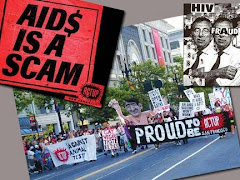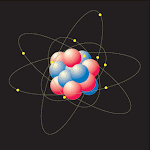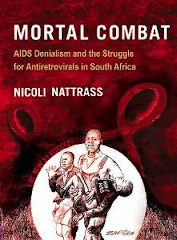I'm referring to denialism, of course.
I must admit, I've had a bit of a love-hate relationship with the term denialism. The reason is simple. As many regular readers may know, my first real foray into online debate involved combatting the particularly pernicious form of denialism known as Holocaust denial. Indeed, an early post on this blog written for the 60th anniversary of the liberation of Auschwitz describes how I discovered Holocaust denial and why I've come to despise this particular form of denial, and Holocaust denial is a topic that, evne now, I still revisit from time to time. It's just that I don't do it as often as I used to, mainly because discussing science in medicine has become my primary focus. Still, my ongoing association with combatting Holocaust denial has colored my subsequent activities in combatting quackery and pseudoscience in that I never liked the word "denial" applied to anything other form of pseudoscience or pseudohistory than Holocaust denial because the word's association with Holocaust denial, which is further inextricably linked to Hitler apologia, anti-Semitism, and Nazi-ism, both old school and neo-Nazi.
Indeed, sometimes I think the very word "denialism" hurts the cause of science because of its association with Holocaust denial. This association makes it very easy for vaccine denialists, evolution denialists (i.e., creationists), HIV/AIDS denialists, anthropogenic climate change denialists, or denialists of scientific medicine (i.e., supporters of unscientific or pseudoscientific "alternative" medicine) to retreat to the cry of the wounded self-righteous, where they claim that the label is in fact tarring them with Holocaust denialism, and all the bigotry and evil that is associated with Holocaust denial. Indeed, the very term "denialism" appears to be an attempt to keep using the term "denial" but to distance it from the the "denial" in Holocaust denial. It doesn't work. In fact, it sometimes even sucks in people who really ought to know better.
People like Dr. Michael Fitzpatrick in the U.K., scourge of Andrew Wakefield and anti-vaccine loons everywhere, not to mention quackbuster extraordinaire, who has written an article for the New Scientist that is so misguided it was painful for me to read it.
I suspect that you'll be able to get an inkling why reading this article caused me pain last week from just its title Living in denial: Questioning science isn't blasphemy. Here's a hint. Whenever you see someone use the word "blasphemy" this way in relation to science in the title of an article about cranks like anti-vaccinationists and HIV/AIDS denialists, you know that it's probably a thinly disguised invocation of Galileo and that the article is likely to contain a lot of amazing nonsense.
In this case, it's a massive straw man argument.
Questioning science isn't "blasphemy"? No scientist I'm aware of says it is. What Dr. Fitzgerald appears to be doing is conflating the very label of "denialism" with that of a church hierarchy enforcing orthodoxy. As I said before, he really ought to know better. It would save him the embarrassment of writing things like this:"
THE epithet "denier" is increasingly used to bash anyone who dares to question orthodoxy. Among other things, deniers are accused of subordinating science to ideology. In his book Denialism: How irrational thinking hinders scientific progress, harms the planet, and threatens our lives, for example, Michael Specter argues that denialists "replace the rigorous and open-minded scepticism of science with the inflexible certainty of ideological commitment".
How ironic. The concept of denialism is itself inflexible, ideological and intrinsically anti-scientific. It is used to close down legitimate debate by insinuating moral deficiency in those expressing dissident views, or by drawing a parallel between popular pseudoscience movements and the racist extremists who dispute the Nazi genocide of Jews."
How ironic. The concept of denialism is itself inflexible, ideological and intrinsically anti-scientific. It is used to close down legitimate debate by insinuating moral deficiency in those expressing dissident views, or by drawing a parallel between popular pseudoscience movements and the racist extremists who dispute the Nazi genocide of Jews."
Not exactly. First off, note how Dr. Fitzgerald is apparently intentionally using the more inflammatory word "denier" rather than the more commonly used term "denialist," as if he is purposely trying to draw a line between Holocaust denial and the very term ("denialism") that was meant to soften the connection between the two. Second, the concept of "denialism" is not inflexible, ideological, or anti-scientific. Far from it! Denialism describes how ideology trumps science, specifically, how ideologues use evidence and science fallaciously to support their ideology. It does not describe any specific outcome or what science says; it describes how ideology drives people to deny science, often without even knowing that that's what they're doing. Calling someone a "denialist" is not shutting down debate; it's a shorthand for describing unsound techniques of argumentation and presenting evidence. Denialism is a set of techniques of fallacious argumentation used to support ideas that are not supported by science. It is far more than just "questioning" science, and in buying into that particular framing (yes, I'm invoking the dreaded F-word), Dr. Fitzpatrick in essence buys into the crank's world view and then defends it against reality.
More importantly, we're not talking about genuine scientific controversies here. There is no legitimate controversy over whether the theory of evolution is the best current explanation for the diversity of life in the scientific community. There may be a lot of legitimate controversy over elements of evolution: how it happens, the mechanisms by which it happens, what influences it the most. There isn't, however a scientific controversy over whether it happens and whether natural selection and various other forms of selection (such as sexual selection) play a major role in guiding it. There is no serious scientific controversy over whether evolution best explains the diversity of life. Similarly, there is no real scientific controversy about whether vaccines cause autism. The evidence is overwhelming that they do not or, if they do, they do so in such a tiny proportion of the population that huge epidemiological studies have not been able to detect it. The story is the same for other denialisms: HIV/AIDS denialism, support for "alternative medicine" and various other quackery, 9/11 Truthers--the list goes on. There is no real scientific controversy. There is, however, a manufactured controversy, a "manufactroversy."
The problem at the heart of combatting denialism is that many, probably most, people engaging in it are actually quite intelligent and have no idea that they are engaging in denialism. Of course, that's also part of what drives denialism. People who are that intelligent all too often suffer from the "arrogance of ignorance," where they think their self-taught "Google University" knowledge trumps that of scientists. They're often completely sincere about it too, although in some cases promoting denialism is a tool of business interests and ideologues to counter "inconvenient" science. That is what makes education about what represents good science and, more generally, what makes a good argument, is critical. The flip side is showing what represents bad argumentation and pseudoscience is even more important, as is showing why the fallacious arguments used to support various denialist ideas is not sound and not worth taking seriously.
I have a hard time seeing what Dr. Fitzpatrick is arguing next, but I sure find it disturbing to see coming from a person whom I would normally consider an ally in the fight to educate the public about what is good science and what is pseudoscience. First, he describes how scientists failed to respond adequately to the anti-vaccine and HIV/AIDS denialist movements:
"In both cases, scientists were dilatory in responding, dismissing the movements as cranks and often appearing to believe that if they were ignored they would quietly disappear. It took five years before mainstream AIDS scientists produced a comprehensive rebuttal of Duesberg. Though child health authorities were alert to the threat of the anti-vaccine campaign, researchers were slow to respond, allowing it to gather momentum."
All of which is more or less accurate, but appears to have little relevance to the argument he appears to be making. What is Dr. Fitzgerald saying here? What is his point? That we as scientists ignored these movements too long? That's probably true. Scientists have a hard time accepting that anyone could believe pseudoscientific nonsense, such as anti-vaccine views or homeopathy and often view them with deserved contempt. Alternatively, many of them take on a "shruggie" attitude, where they dismiss the possibility that such ideas could catch on and just shrug their shoulders in disbelief. Understandable, but, as we have found out, profoundly misguided. Unfortunately, this confused paragraph is just the lead-in to Dr. Fitzgerald's apparent attempt at a coup de grace against the concept of denialism. Those who call a denialist a denialist, you see, are suppressing free speech:
"Social psychologist Seth Kalichman of the University of Connecticut in Storrs mounts a typical defence of this stance in his book Denying Aids: Conspiracy theories, pseudoscience, and human tragedy. According to Kalichman, denialists often "cross the line between what could arguably be protected free speech". He justifies suppression of debate on the feeble grounds that this would only legitimise the deniers and that scientists' time would be better spent on research.
Such attempts to combat pseudoscience by branding it a secular form of blasphemy are illiberal and intolerant. They are also ineffective, tending not only to reinforce cynicism about science but also to promote a distrust for scientific and medical authority that provides a rallying point for pseudoscience."
Here we go with that "secular form of blasphemy" nonsense again! But what about Professor Kalichman? did he really say that? If he did, I'd be profoundly opposed to such an idea. For those of you who don't believe me, let me remind you of my frequent broadsides against laws criminalizing Holocaust denial in the past and my harsh criticism of the imprisonment of David Irving for Holocaust denial in Austria. But Did Kalichman actually say that denialists often "cross the line between what could arguably be protected free speech"?

















No comments:
Post a Comment